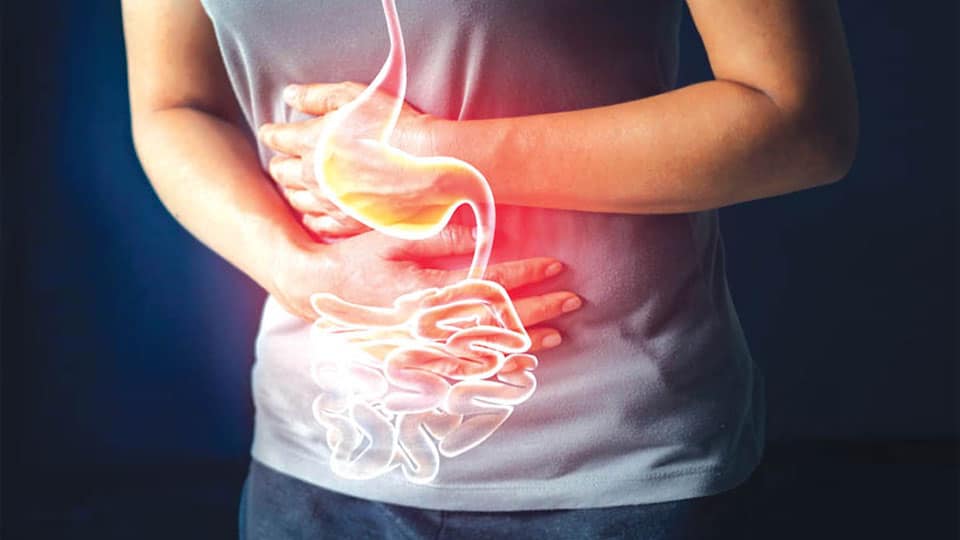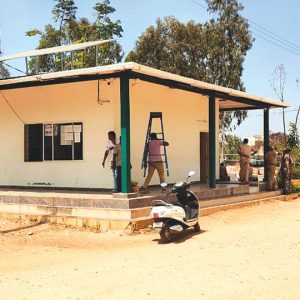By Dr. Rajkumar Wadhwa, M.D., D.M., FASGE, Chief Gastroenterologist and HoD, Institute of Gastrosciences, Apollo BGS Hospitals, Mysuru
India has been hit with the second wave of the novel Coronavirus (also known as COVID-19), a lethal contagion that predominantly affects the respiratory system. While a significant number of patients successfully recover, a small proportion develop severe pneumonia and may succumb to the illness. Questions regarding the impact on other organ systems have plagued the medical community in recent times. In this article we try to explore the effects of COVID-19 on the Gastrointestinal (GI) System.
Respiratory symptoms are most commonly visible and associated with the virus. That said, a recent review by the American Gastroenterological Association suggests that 53% of people hospitalised with COVID-19 experience at least one GI symptom in the duration of their illness.
What is the GI System?
The GI system is the tract from the mouth to the anus that comprises the food pipe or esophagus, the stomach, the small and large intestines; along with organs including the liver, gallbladder and pancreas.

GI Symptoms Associated With COVID-19
Along with cough and breathlessness, the most common symptoms of the virus, symptoms attributable to the GI system have also been found frequently.
To elaborate, the first person with COVID-19 in the US experienced two days of nausea and vomiting followed by diarrhoea. The research is ever-evolving, but an analysis of 125 articles and a total sample of 25,252 patients has displayed the following to be the most common GI symptoms associated with COVID-19:
Lack of appetite : 19.9%
Lack of smell or taste : 15.4%
Diarrhoea : 13.2%
Nausea : 10.3%
Vomiting up blood or GI bleeding : 9.1%
Less commonly, COVID-19 may also cause belching, acid reflux, colitis or intestinal inflammation. Currently, GI symptoms mostly coexist with respiratory symptoms. However, a review from late 2020 found ~20% of patients of COVID-19 solely experience GI symptoms.
As a word of caution, nausea and diarrhoea may also result due to medications that healthcare professionals use to manage COVID-19, such as antivirals and antibiotics.
How does COVID-19 affect the GI System?
Studies show that the SARS-CoV-2 virus (Coronavirus) enters intestinal and respiratory cells using the Angiotensin-Converting Enzyme 2 (ACE-2) protein as a receptor. Once inside, the virus uses the host cells’ machinery to produce copies of viral proteins and ribonucleic acid (RNA).
When SARS-CoV-2 particles leave an infected cell, it triggers the release of cytokines, which are small proteins leading to inflammation. This process is considered the root cause of GI symptoms.
Can COVID-19 spread through the Fecal-Oral Route?
In recent studies, there is increasing evidence that SARS-CoV-2 could spread via fecal-oral transmission. Essentially, this means that people could acquire an infection by accidentally ingesting or inhaling droplets of infected feces.
However, researchers have yet to determine whether the proteins and particles shed in feces are infectious or capable of actually causing disease.

Disease Outcomes
People who experience GI symptoms with COVID-19 may be more likely to develop complications like Acute Respiratory Distress Syndrome, as suggested by various studies. It also increased the risk of undergoing procedures such as non-invasive mechanical ventilation and tracheal intubation.
In patients with underlying GI conditions, such as Irritable Bowel Syndrome, overexpression of ACE-2 occurs, giving the virus increased opportunities to enter the already weakened cells.
Medications used to treat GI diseases can reduce stomach acidity, facilitating the contraction of the virus from ingested substances. Typically, the stomach’s high acidity levels are strong enough to deactivate viral particles.
Moving Forward
Knowing how often, when, and why COVID-19 causes GI symptoms can have significant benefits in the long term.
Based on research thus far, doctors and nurses can begin testing people with indicators, namely loss of taste, anorexia, and diarrhoea, as highly specific GI symptoms for the infection — even in patients with no respiratory symptoms. The positive impact of such a move will be massive — millions of asymptomatic potential COVID-19 cases can be identified and treated earlier.
As a side note, if feces containing the virus is infectious, wastewater management and treatment becomes an important challenge to reduce transmission.
Preliminary studies show certain symptoms may persist for weeks to months after recovery. A recent review found ~16% of people may experience persistent nausea and vomiting thus giving us an idea about the long-term effect of disease in GI tract.
With the details available till now we understand GI system also gets affected by this virus and can be one of the determinants of outcomes of disease.








Recent Comments